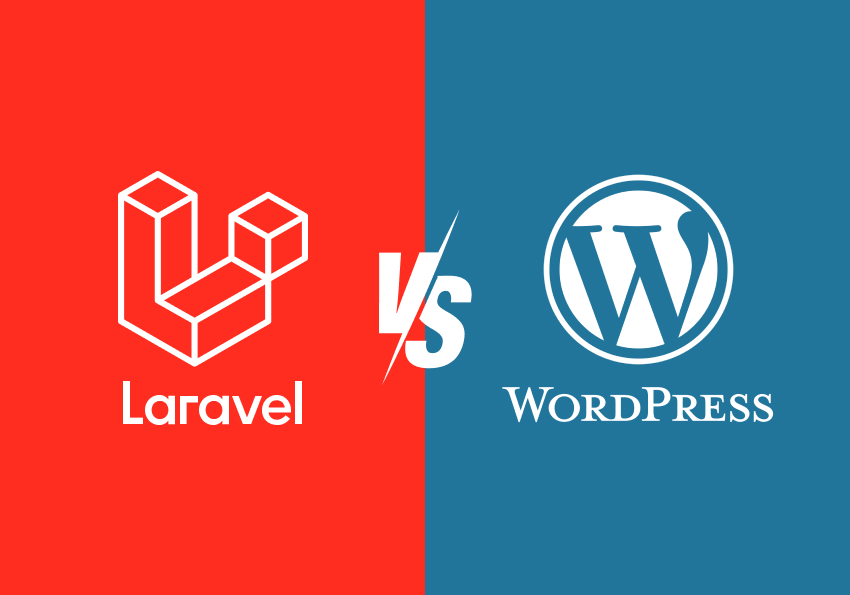The right framework for your application
Written by William ElegeertAugust 25 2024

When developing a website or web application, choosing the right technology is crucial. Nearly 80% is based on PHP. Therefore, we compare two popular frameworks, both based on the PHP programming language: WordPress and Laravel.
Platforms that we at SowiesoDigital use frequently, each with its strengths and features depending on the needs or goals.
WordPress: The Power of Simplicity
WordPress is the leading platform in content management. Initially designed for bloggers, WordPress has evolved into the most popular CMS with a 40% market share due to its simplicity, user-friendliness, extensive community, theme options, and availability of tens of thousands of plugins.
Its scalable modular setup allows for the development of both websites and web applications for small and large businesses alike.
WordPress is scalable and offers developers the necessary freedom and flexibility for extensions. Many content creators are familiar with WordPress and appreciate the ease of use of Gutenberg or other block editors for assembling pages. For online marketers, the numerous available plugins are powerful tools for optimization.
Using WordPress as the foundation for a web application and leveraging available building blocks such as post types, taxonomies, and custom fields ensures a strong start for a new project. The ready-made building blocks often lead to significant cost savings.
However, using a large universal system as the foundation for a project also has its drawbacks. In a website or online application, only a small portion of the functionalities are utilized. The WordPress codebase and third-party plugins are subject to constant changes, which means your application will also need regular updates for code fixes or new functionalities. Custom code will also need to be updated frequently to maintain optimal stability and security.
As the website or application grows in size and complexity, maintenance increases, and this can impact the performance and stability of the application as all components need to work together. Due to its popularity and extensive extensibility, WordPress is also a common target for malicious actors.
Fortunately, there are many ways to optimize speed and security, such as using database, object, and web caching techniques, or employing a headless structure where the front end of the website or application is separated from the CMS.
Laravel: Mastery Through Craftsmanship
Laravel is a PHP framework designed for building robust custom websites and web applications. It offers tremendous flexibility for developers to enable almost any functionality and tackle digital challenges.
The framework is ideal for projects that require complex functionality, including extensive API integrations, authentication, database connections, or elaborate workflows. With a 20% share, it is the leading PHP framework.
Unlike WordPress, Laravel does not come with a built-in content management system. Fortunately, there are numerous open-source and premium CMS and admin panels that can be integrated with a Laravel application, such as October CMS, Statamic, Nova, Voyager, Filament, and Breeze. Each solution has its own benefits and focuses on different aspects, such as content management, multilingual support, file management, access control, SEO, CRM, e-commerce, or external integrations.
The community is smaller compared to WordPress, which means there are fewer out-of-the-box functionalities available. Nevertheless, good SEO practices and an optimal URL structure can be easily implemented in a Laravel-based project to achieve excellent SEO results.
Which PHP Platform Will You Choose for Your Next Project?
Both WordPress and Laravel are highly suitable for developing complex websites or online applications. WordPress offers a shorter time-to-market and lower startup costs, particularly due to the availability of proven plugins like Gravity Forms for forms, Yoast for SEO optimization, and Smush for image optimization. WordPress is user-friendly and popular but requires regular code optimization and attention to security.
Laravel, on the other hand, is robust and flexible, making it ideal for mission-critical applications where stability and scalability are essential.
More news
Getting started with
SowiesoDigital?
Neem vrijblijvend contact op met onze specialisten om te sparren over de mogelijkheden van een headless CMS.

